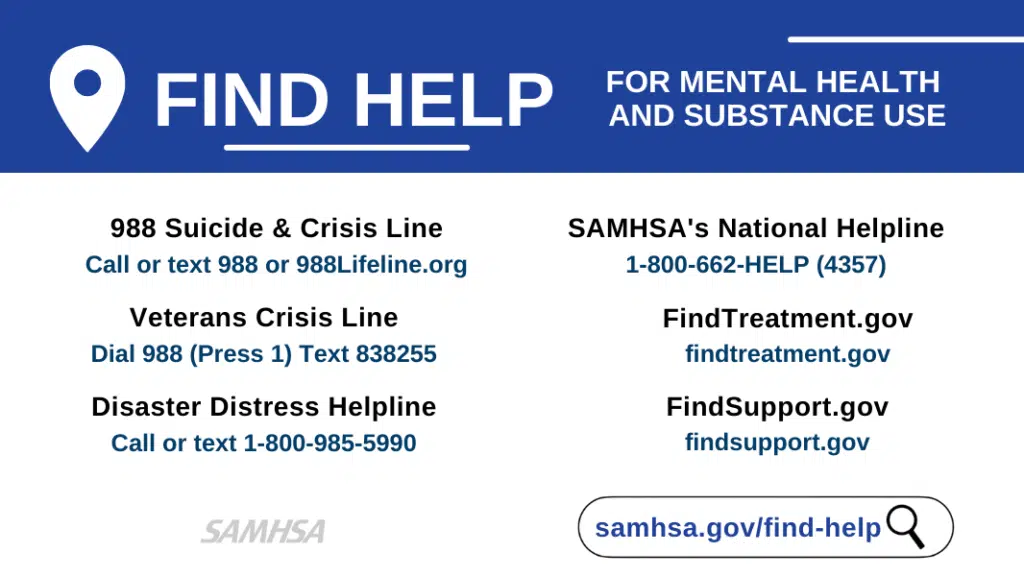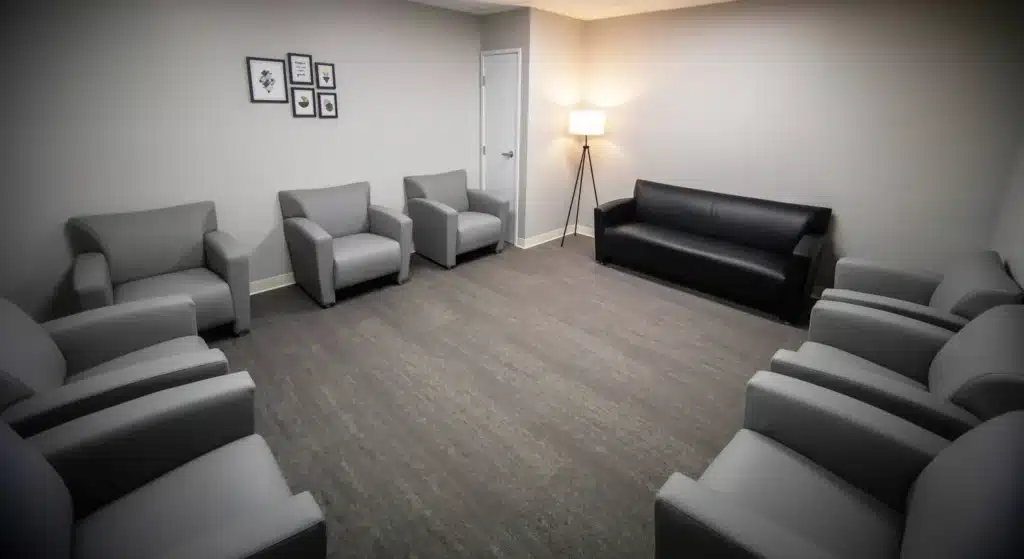
Finding Free Methadone Clinics for Opioid Addiction Treatment
Searching for a free methadone clinic near me is the first step toward accessing SAMHSA-certified Opioid Treatment Programs (OTPs). These clinics offer medication-assisted treatment at no cost or on a sliding scale, combining daily methadone with counseling to help individuals recover from opioid use disorder.
Quick Ways to Find a Free Methadone Clinic:
- SAMHSA Treatment Locator – Visit findtreatment.gov and filter for “payment assistance” or “sliding fee scale.”
- Local Health Departments – Contact your city or county health department for grant-funded programs.
- Medicaid Provider Networks – Check your state’s Medicaid website for participating providers.
- Federally Qualified Health Centers (FQHCs) – Use HRSA’s locator to find centers offering low-cost MAT.
- Nonprofit Organizations – Reach out to community organizations like Catholic Charities or The Salvation Army.
Opioid addiction is a medical disorder that changes brain chemistry, requiring medical help to heal. Methadone is a highly effective, long-acting medication that reduces cravings and withdrawal symptoms without producing a high. When dosed correctly, it helps you feel “normal” so you can focus on rebuilding your life.
While cost has been a major barrier, access to free and low-cost methadone clinics is improving. These facilities are often funded through state and federal grants, Medicaid, and nonprofit partnerships, allowing them to serve those who cannot afford treatment. Oversight from the Substance Abuse and Mental Health Services Administration (SAMHSA) and provisions from the Affordable Care Act have further improved access and effectiveness.
Whether you’re uninsured, unemployed, homeless, pregnant, a veteran, or referred by the court system, you may qualify for free treatment. Methadone stabilizes individuals by reducing withdrawal and blocking the high from other opioids, breaking the cycle of addiction. Treatment is recommended for at least 12 months, but the journey is unique for everyone.
At Addiction Helpline America, we connect people with free methadone clinic near me resources nationwide. We understand the urgency you’re feeling and are here to guide you toward accessible, life-saving care.

Free methadone clinic near me definitions:
- doctors near me that prescribe methadone
- methadone clinics that accept medicaid near me
- methadone programs near me
1. What is Methadone and How Does It Help Treat Opioid Addiction?

If you’re looking for a free methadone clinic near me, it’s helpful to understand how this medication works.
Methadone is an FDA-approved synthetic opioid medication for treating opioid use disorder. As a long-acting opioid agonist, it binds to the same brain receptors as other opioids but works differently. Instead of a quick, intense high, methadone releases slowly and steadily. This gradual action reduces cravings, prevents withdrawal symptoms, and blocks the euphoric effects of other opioids. By occupying these receptors, it makes using other opioids less rewarding.
Call Now – Your Journey to Recovery Begins Today!

Take the first step towards a healthier life! Call now to connect with our compassionate team and start your recovery journey today. Your path to healing awaits!
Our recovery specialists are available 24/7 to provide support, and all calls are confidential and free. Reach out anytime – we’re here to help!
This process stabilizes your brain chemistry, allowing you to feel “normal” and function without the constant obsession of seeking drugs. It’s important to know that methadone is not replacing one addiction with another. It is a legitimate medical treatment, like insulin for diabetes. Scientific research on methadone treatment regulations confirms its effectiveness. For more information on managing dependence, see our guide on detox from prescription drugs.
The Role of Methadone in a Comprehensive Treatment Plan
Methadone is most effective as part of Medication-Assisted Treatment (MAT), which combines medication with counseling and behavioral therapies. The medication stabilizes your body and brain, while counseling helps you heal your life. Addiction impacts relationships, thinking patterns, and coping skills. Counseling provides a safe space to address the root causes of substance use—such as trauma or mental health struggles—and develop healthier coping strategies. This holistic approach treats the whole person, building a foundation for lasting recovery.
Methadone vs. Other Opioids
Heroin and fentanyl are fast-acting, creating an intense but short-lived high followed by a crash and severe cravings. This rush-crash cycle traps individuals in a pattern of compulsive use.
Methadone, a full opioid agonist, activates the same receptors but has a gradual onset and maintains stable drug levels for 24-36 hours. There is no rush or crash. Instead, you get steady relief from cravings and withdrawal. This stability breaks the compulsive drug-seeking cycle, allowing you to focus on work, family, and recovery. It gives you your life back by helping you feel normal enough to do the hard work of healing.
2. How Can I Find a Free Methadone Clinic Near Me?

If you’re searching for a free methadone clinic near me, know that accessible treatment exists. Cost should not be a barrier to recovery. State and federal funding, including grant-funded programs, have opened new doors for those who can’t afford traditional treatment. These clinics are supported by government grants, Medicaid/Medicare, and community partnerships, often eliminating out-of-pocket costs for eligible patients.
Practical Steps to Find a Free Methadone Clinic Near Me
Finding the right clinic can be straightforward. Here are some effective resources:
- Addiction Helpline America: Our confidential helpline and treatment locator connect you directly to local methadone programs.
- Local Health Departments: City and county health departments have current information on grant-funded programs in your area.
- Medicaid/Medicare: If you are eligible, check your state’s provider networks. These programs often cover the full cost of treatment.
- Nonprofit Organizations: Groups like The Salvation Army and Catholic Charities often have resources or referrals for addiction treatment.
- Online Searches: When using online directories, look for filters like “payment assistance” or “sliding fee scale.” This indicates that a clinic adjusts costs based on income.
What to Ask When You Call a Clinic
When you call a clinic, being prepared with questions can help you find the right fit. Clinic staff are there to help and expect these questions.
- Clinic Hours: Most clinics dose in the morning. Ask about their specific hours, including weekends and holidays.
- Visit Frequency & Take-Homes: You’ll likely visit daily at first. Ask about the requirements and timeline for earning take-home doses.
- Services Offered: Does the clinic offer individual and group counseling, case management, or other support services? A comprehensive program is most effective.
- Insurance and Costs: Confirm they accept your insurance (Medicaid, Medicare, private). If uninsured, ask directly about free programs, grants, or sliding scale fees.
- Waitlist Information: Ask if there is a waitlist and how long it is. Inquire about any interim support they can offer. You can also contact our addiction and rehab hotlines for immediate guidance.
Asking these questions is an act of self-advocacy that is crucial for successful recovery.
3. Who is Eligible and What Should I Expect During My First Visit?
If you’re searching for a free methadone clinic near me, you’re likely wondering about eligibility. The good news is that these programs are designed for people facing financial hardship.
Eligibility often depends on financial need and specific circumstances. You may qualify if you are:
- Uninsured or underinsured
- Enrolled in Medicaid or Medicare
- Experiencing homelessness
- A veteran
- Pregnant
- Referred through the court system
Clinics typically verify income to determine if you qualify for free services or a sliding-scale fee. Some programs require proof of residency. Funding sources like state grants often prioritize individuals with the greatest need. The best way to know for sure is to call the clinics directly and ask about their specific requirements. You can also learn about insurance options through the Affordable Care Act at healthcare.gov.
Your First Day at a Methadone Clinic
Walking into a clinic for the first time takes courage. The staff are there to help you heal, not to judge. Your first visit will be thorough and may take several hours.

Here’s what to expect:
- Intake and Paperwork: You’ll fill out forms with personal information, consent for treatment, and provide any documents needed to verify eligibility (like proof of income).
- Medical Assessment: A healthcare professional will discuss your medical and substance use history to understand your needs and ensure safety. This includes a urine drug screen to confirm which substances are in your system, which is essential for proper dosing.
- Physical Exam: A physical and possible blood tests ensure you are medically stable enough to begin treatment and identify any other health concerns.
- Meeting Your Counselor: You’ll be introduced to your counselor, who will explain the therapy services and begin building a supportive relationship.
- Education and Consent: Staff will explain how methadone works, its benefits, potential side effects, and clinic rules. You will sign consent forms to proceed.
- First Dose and Observation: You’ll receive your first dose of methadone, which is typically a low, conservative amount. Afterward, you will be observed for one to three hours to monitor your reaction and ensure your safety.
This first day is about safely starting your journey toward stabilization. You’re not just getting medication; you’re taking the first step toward getting your life back.
4. What Other Services Do Free Clinics Offer?
A free methadone clinic near me offers more than just medication. Federal regulations require Opioid Treatment Programs (OTPs) to provide comprehensive care that treats the whole person. Methadone provides the stability, but these other services help you rebuild your life.
Beyond the daily dose, clinics typically offer:
- Counseling Services: Both individual and group therapy sessions to address root causes and connect with peers.
- Case Management: An advocate to help you steer social services for housing, legal issues, or job training.
- Relapse Prevention Planning: Identifying triggers and developing coping strategies to stay on track.
- Peer Support: Connection with specialists who have personal experience with recovery and can offer unique encouragement.
- Medical Monitoring: Regular check-ups and urine drug screenings to monitor health and ensure accountability.
- Referrals: Connections to housing, employment assistance, and other community resources. For more intensive options, see our guide on affordable inpatient rehab options.
This comprehensive approach addresses the physical, psychological, and social factors of addiction, creating a complete support system.
Call Now – Your Journey to Recovery Begins Today!

Take the first step towards a healthier life! Call now to connect with our compassionate team and start your recovery journey today. Your path to healing awaits!
Our recovery specialists are available 24/7 to provide support, and all calls are confidential and free. Reach out anytime – we’re here to help!
The Importance of Counseling and Support
Medication alone is rarely enough for lasting recovery. Think of methadone as the cast for a broken leg—it heals the bone. Counseling is the physical therapy needed to regain strength and learn to walk again. Addiction often stems from underlying issues like trauma, anxiety, or chronic pain. Counseling provides a safe space to address these root causes so they no longer control your future. It also teaches practical skills for managing stress, rebuilding relationships, and handling triggers. The evidence is clear: patients who receive both medication and counseling have significantly better outcomes.
Difference Between a Free Methadone Clinic and a Private One
Wondering if “free” means lower quality? Absolutely not. All SAMHSA-certified Opioid Treatment Programs, free or private, must meet the same federal standards for safety and quality of care.
The primary difference is funding. Free clinics run on government grants and donations to serve those who can’t afford private treatment. Private clinics rely on insurance and out-of-pocket payments. For you, this means a free clinic may have no cost or a small sliding-scale fee, while private clinics can be expensive without good insurance.
Free clinics may sometimes have waitlists due to high demand, though they often prioritize urgent cases like pregnancy. The patient demographics may differ, but the quality of the medication, the requirement for counseling, and the standards of care are the same. A free clinic is simply a high-quality program funded to be accessible to everyone.
5. How Can I Succeed in a Methadone Treatment Program?
Success in a free methadone clinic near me program requires active engagement. Recovery takes time and effort, but a stable, fulfilling life is worth it.
Methadone treatment is often a long-term commitment. A minimum of 12 months is recommended, but many people benefit from years of treatment. This isn’t failure; it’s managing a chronic medical condition effectively. Like any medication, methadone can have side effects (e.g., drowsiness, dry mouth), which often improve over time. Open communication with your provider is key.
Barriers like stigma and transportation exist, but clinics have case managers to help with solutions like bus passes. To succeed, focus on these key actions:
- Be Consistent: Attend all appointments to build routine and keep medication levels stable.
- Be Honest: Your providers can only help if they know what’s really going on, including slips or side effects.
- Participate in Counseling: This is where you develop coping skills and address underlying issues.
- Avoid Other Substances: Mixing methadone with alcohol or other drugs is extremely dangerous and increases overdose risk.
- Use Support Services: Let case managers help you with housing, employment, and other life-building resources.
- Be Patient: Stabilization takes time. Celebrate small victories and view setbacks as learning opportunities. Our free drug helpline is always available for support.
Earning Take-Home Doses
Earning take-home doses is a major milestone, representing increased freedom and trust. Instead of daily visits, you can take medication home, offering more flexibility for work and life. These privileges are earned through demonstrated responsibility, governed by federal regulations.
To qualify, you’ll need to show consistent attendance, negative drug screens, progress in counseling, and adherence to program rules. Most clinics require a period of stability (often 90 days) before you can earn your first take-home dose. This increased autonomy is a powerful reward for your commitment.
Long-Term Prospects and Treatment Duration
The long-term prospects for people in methadone treatment are very encouraging. Research shows that patients experience improved health, dramatically reduced overdose risk, and better social functioning. They rebuild careers, families, and find purpose again.
The question of how long to stay on methadone is personal and should be decided with your medical team. Some use it as a bridge to recovery, while others find it works best as a long-term maintenance medication. Both paths are valid. What matters is that methadone gives you the stability to develop lifelong recovery tools. Whether for one year or ten, you are actively managing a medical condition and choosing life over addiction.
Frequently Asked Questions about Free Methadone Clinics
Can I work or go to school while on methadone?
Yes, absolutely. A primary goal of methadone treatment is to help you reclaim a productive life. When stabilized on the correct dose, the medication eliminates cravings and withdrawal, allowing you to focus on your job, studies, and family. Most clinics offer early morning dosing hours to fit with work and school schedules. As you earn take-home doses, you’ll gain even more flexibility. Federal law protects your confidentiality, so you are not required to inform your employer or school.
What happens if I relapse while in treatment?
Relapse is not a failure; it is a common part of the recovery process. If you use other substances, the goal is not to punish you but to understand what happened and adjust your treatment plan. Your team will work with you to identify triggers and increase support, perhaps by adjusting your dose or counseling frequency. A relapse is treated as a medical event, not a moral failing. Honest communication with your providers is crucial. You will not be immediately dismissed from the program, as policies recognize that recovery has ups and downs. For extra support, our free drug helpline is always available.
Is it safe to take methadone if I am pregnant?
Yes. In fact, methadone treatment is the recommended standard of care for pregnant individuals with opioid use disorder. It is far safer for both mother and baby than continuing illicit opioid use or quitting “cold turkey.” Illicit use causes dangerous cycles of intoxication and withdrawal for the fetus, leading to serious complications. Methadone provides stable medication levels, protecting the baby from withdrawal episodes and allowing the mother to focus on prenatal care.
Babies born to mothers on methadone may experience neonatal abstinence syndrome (NAS), a treatable condition managed in a hospital. The risks of NAS are significantly lower than those of untreated addiction during pregnancy. Pregnant individuals are often prioritized for admission to a free methadone clinic near me due to the urgent health risks involved.
Conclusion

Recovery from opioid use disorder is possible. Every day, people who once felt hopeless are rebuilding full, meaningful lives. Many of them started exactly where you are: searching for a free methadone clinic near me and hoping for a better future.
Free methadone clinics are vital lifelines that remove cost as a barrier to care. They are designed for everyone, regardless of income or life circumstances. This guide has shown how methadone works, where to find help, what to expect, and the comprehensive support services that create a foundation for lasting recovery.
Methadone treatment is most effective when it combines medication with counseling, community support, and your own commitment. The journey is different for everyone, and what matters is finding the path that works for you.
Call Now – Your Journey to Recovery Begins Today!

Take the first step towards a healthier life! Call now to connect with our compassionate team and start your recovery journey today. Your path to healing awaits!
Our recovery specialists are available 24/7 to provide support, and all calls are confidential and free. Reach out anytime – we’re here to help!
At Addiction Helpline America, we have years of experience connecting people with the resources they need. We offer free, confidential guidance because we believe everyone deserves a chance to heal.
If you’re ready to take the first step, or just need to talk about your options, we’re here. Our team can help you find a drug rehab program near you that fits your needs. Don’t let uncertainty or financial worries stop you from reaching out. The call is free, confidential, and could be the start of your new life. You don’t have to do this alone.
Our helpline is 100%
free & confidential
If you or someone you care about is struggling with drug or alcohol addiction, we can help you explore your recovery options. Don’t face this challenge alone—seek support from us.
Programs
Resources
Will my insurance
cover addiction
treatment?
We're ready to help
Find the best
drug or alcohol treatment
center
Are you or a loved one struggling with addiction? Call today to speak to a treatment expert.















